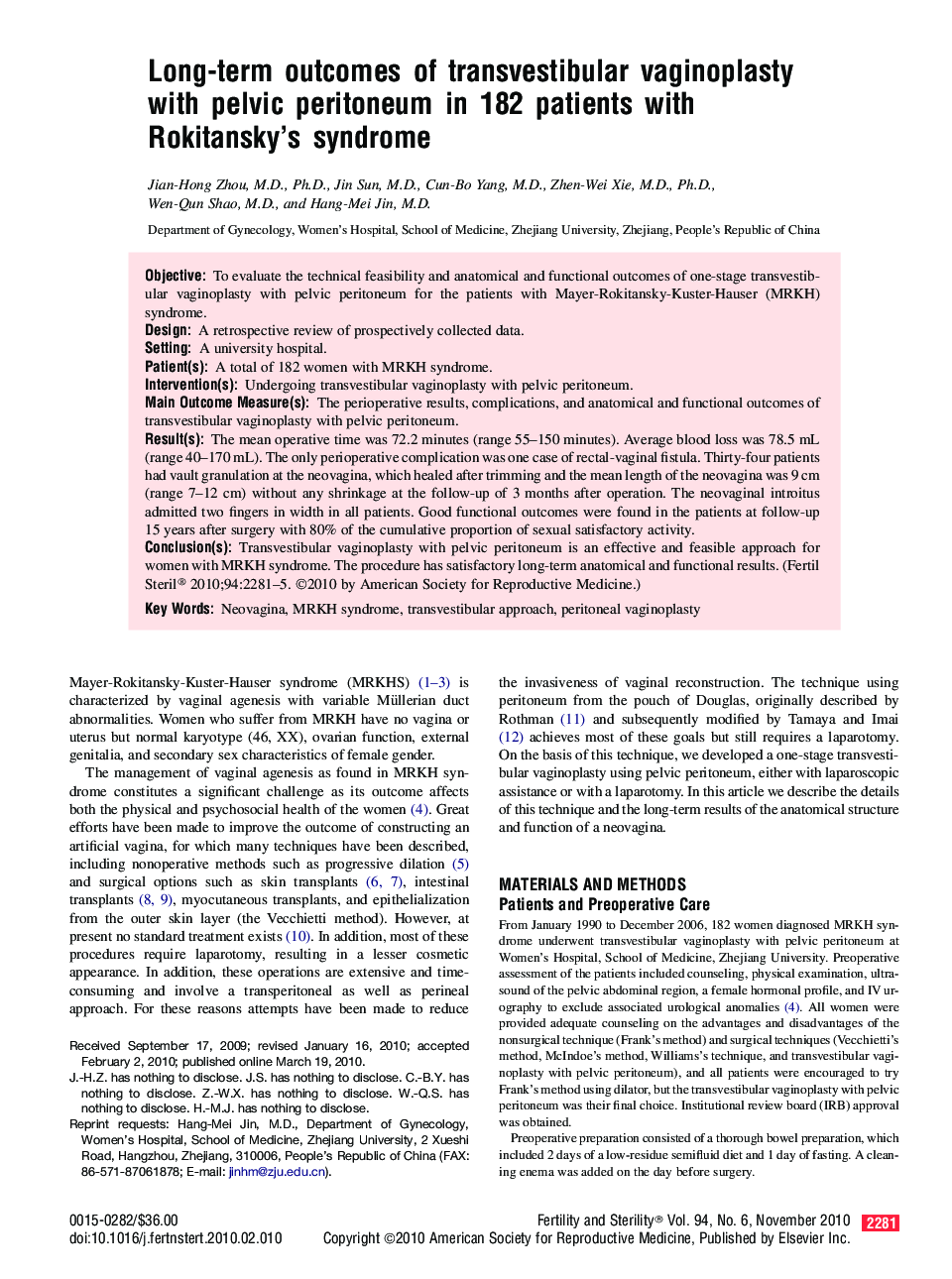| Article ID | Journal | Published Year | Pages | File Type |
|---|---|---|---|---|
| 3932862 | Fertility and Sterility | 2010 | 5 Pages |
ObjectiveTo evaluate the technical feasibility and anatomical and functional outcomes of one-stage transvestibular vaginoplasty with pelvic peritoneum for the patients with Mayer-Rokitansky-Kuster-Hauser (MRKH) syndrome.DesignA retrospective review of prospectively collected data.SettingA university hospital.Patient(s)A total of 182 women with MRKH syndrome.Intervention(s)Undergoing transvestibular vaginoplasty with pelvic peritoneum.Main Outcome Measure(s)The perioperative results, complications, and anatomical and functional outcomes of transvestibular vaginoplasty with pelvic peritoneum.Result(s)The mean operative time was 72.2 minutes (range 55–150 minutes). Average blood loss was 78.5 mL (range 40–170 mL). The only perioperative complication was one case of rectal-vaginal fistula. Thirty-four patients had vault granulation at the neovagina, which healed after trimming and the mean length of the neovagina was 9 cm (range 7–12 cm) without any shrinkage at the follow-up of 3 months after operation. The neovaginal introitus admitted two fingers in width in all patients. Good functional outcomes were found in the patients at follow-up 15 years after surgery with 80% of the cumulative proportion of sexual satisfactory activity.Conclusion(s)Transvestibular vaginoplasty with pelvic peritoneum is an effective and feasible approach for women with MRKH syndrome. The procedure has satisfactory long-term anatomical and functional results.
